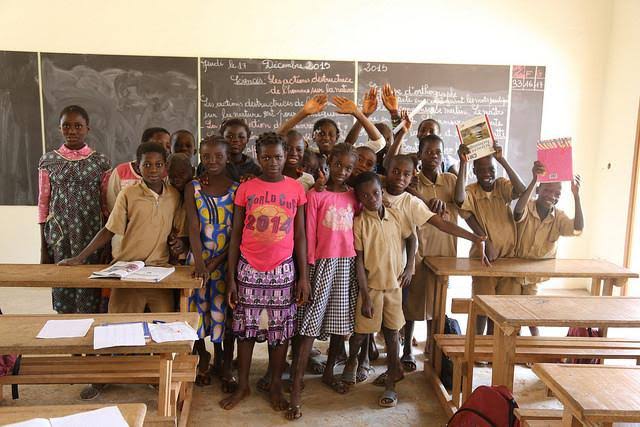Discover how education fosters peace and security in Nigeria, addressing socio-economic disparities, promoting tolerance, and empowering citizens to resolve conflicts peacefully.
.Education plays crucial role in fostering peace and security within any nation and Nigeria is no exception. This comprehensive discussion delves into how education contributes to stability conflict resolution. And societal harmony in Nigeria. Addressing key factors from literacy and empowerment to tolerance and economic development.
Introduction: The Nexus Between Education, Peace and Security
Education serves as cornerstone for sustainable development and peacebuilding efforts worldwide. In Nigeria a country with diverse ethnicities. Cultures and socio-economic disparities, education emerges as a potent tool. For promoting understanding tolerance and cooperation among its diverse population. By investing in education, Nigeria not only empowers its citizens but also builds foundation for long-term peace and stability.
Education and Socioeconomic Development
Education is intrinsically linked to socioeconomic development. It offers individuals skills and knowledge needed to secure meaningful employment. Also contributes to the economy and improves their quality of life. In Nigeria disparities in educational access and quality often correlate with economic inequalities and social unrest. By prioritizing education, particularly in marginalized communities Nigeria can address socio-economic grievances. And reduce disparities that contribute to instability
Fostering Critical Thinking and Empowerment
Quality education cultivates critical thinking skills, empowering individuals to analyze societal issues, challenge harmful stereotypes, and advocate for peaceful coexistence. In Nigeria, promoting critical thinking through education encourages citizens to engage in constructive dialogue, question divisive narratives, and seek peaceful resolutions to conflicts. By nurturing informed and empowered citizens, education becomes a catalyst for fostering a culture of peace and social cohesion.
Promoting Tolerance and Cultural Understanding
Education promotes tolerance by exposing individuals to diverse perspectives, cultures, and traditions. In Nigeria, a country with over 250 ethnic groups and multiple religions, education serves as a platform for promoting intercultural dialogue, respect for diversity, and appreciation of shared national identity. By integrating cultural education into the curriculum, Nigeria can mitigate ethno-religious tensions and promote mutual understanding among its diverse populace.
Education as a Tool for Conflict Prevention and Resolution
Investing in education enhances conflict prevention and resolution capabilities by equipping individuals with conflict management skills, negotiation techniques, and peacebuilding strategies. In Nigeria, where communal conflicts, insurgency, and intergroup violence pose significant challenges to peace and security, education plays a pivotal role in promoting non-violent dispute resolution and fostering reconciliation among conflicting parties.
Addressing Root Causes of Radicalization and Extremism
Education serves as a potent antidote to radicalization and extremism by offering alternative narratives, promoting critical inquiry, and countering extremist ideologies. In Nigeria, particularly in regions affected by insurgency and extremism, education initiatives that emphasize tolerance, human rights, and civic responsibility are essential for countering radicalization efforts and promoting ideologies of peace and coexistence.
Role of Education in Strengthening Governance and Rule of Law
A well-educated populace is essential for strengthening governance institutions and upholding the rule of law. In Nigeria, effective governance and transparent institutions are crucial for addressing corruption, ensuring accountability, and maintaining public trust. By promoting civic education and ethical leadership through formal and informal channels, education contributes to building resilient institutions that uphold democratic values and promote social justice.
Challenges and Barriers to Educational Development
Despite its transformative potential, education in Nigeria faces numerous challenges, including inadequate funding, infrastructure deficits, teacher shortages, and regional disparities in access. Addressing these challenges requires sustained investment in education infrastructure, teacher training programs, curriculum reform, and equitable distribution of resources to underserved communities.
International Cooperation and Support
International cooperation and support are vital for enhancing educational opportunities in Nigeria. Partnerships with global organizations, donor agencies, and educational institutions can provide technical assistance, financial resources, and best practices to strengthen Nigeria's education system, improve learning outcomes, and promote sustainable development goals.
Conclusion: Investing in Education for Sustainable Peace and Security
In conclusion, education plays a pivotal role in promoting peace, security, and sustainable development in Nigeria. By investing in education, addressing socio-economic disparities, promoting tolerance, and fostering critical thinking, Nigeria can build a resilient society capable of overcoming challenges and embracing opportunities for growth. As Nigeria continues its journey towards peace and prosperity, education remains a powerful catalyst for creating a peaceful and inclusive future for all its citizens.
Education not only equips individuals with the knowledge and skills to thrive but also empowers communities to resolve conflicts peacefully, uphold human rights, and build a prosperous nation founded on principles of justice, equality, and unity.
